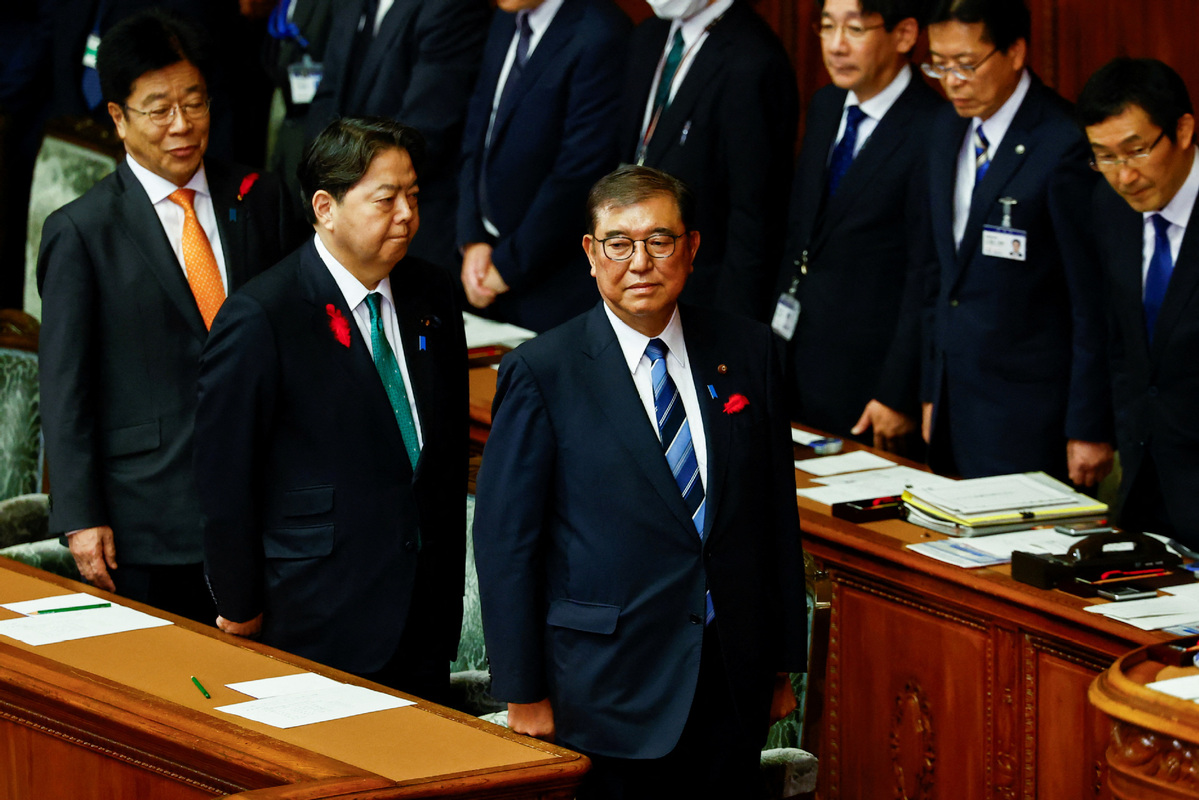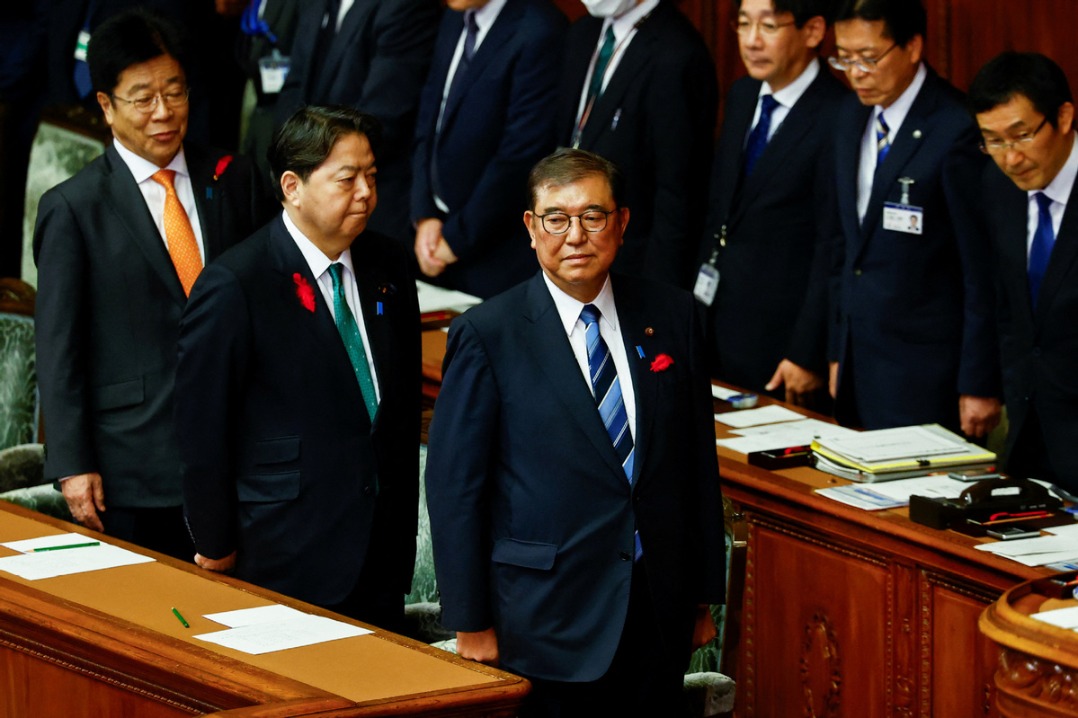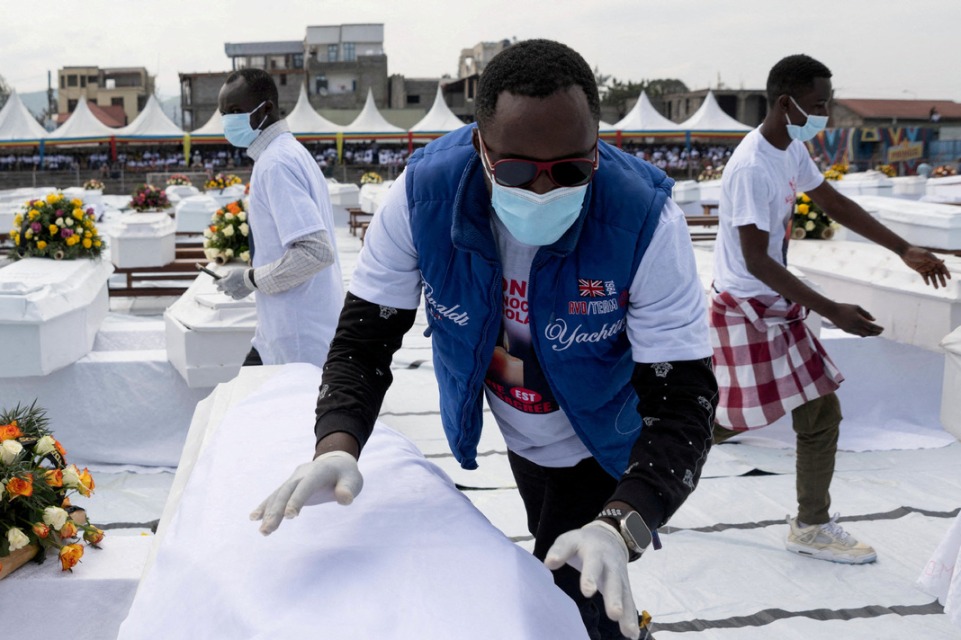Japan's Ishiba dissolves lower house for election


The Japanese government dissolved the House of Representatives on Wednesday, paving the way for a general election.
In this election, the ruling coalition will face off against opposition parties on key issues, including the "politics and money" scandal and economic policies such as measures aimed at tackling rising prices.
This dissolution, which came later in the afternoon and just eight days after Prime Minister Shigeru Ishiba took office, marks the shortest interval between a prime minister's inauguration and a lower house dissolution in Japan's postwar history.
The general election, expected to be announced on Oct 15 with voting set for Oct 27, will be the first since October 2021. A total of 465 seats will be contested, comprising 289 from single-member districts and 176 through proportional representation.
Before the dissolution, the ruling coalition held 288 seats, with the Liberal Democratic Party, or LDP, holding 256 seats and Komeito 32, well above the majority threshold of 233.
Komeito leader Keiichi Ishii has set the coalition's goal at retaining a majority, while Yoshihiko Noda, president of the main opposition Constitutional Democratic Party of Japan, or CDP, has pledged to push the ruling bloc below majority status.
The main focus of the general election will be on how many seats the CDP can secure, according to Shigeaki Koga, a policy analyst and former official at Japan's Ministry of Economy, Trade and Industry.
Koga noted that Noda, the new CDP leader, holds quite conservative views, particularly on the law allowing the exercise of the right of collective self-defense. This has sparked strong opposition from the Japanese Communist Party, or JCP, making cooperation between the CDP and JCP in the election challenging.
In fact, the JCP has already begun fielding its own candidates in constituencies where it previously refrained from doing so, which could lead to the CDP and JCP competing against each other in some districts. As a result, Koga pointed out, the opposition bloc, including the CDP and other parties, may struggle to win more seats than the ruling LDP and its coalition partner, Komeito — a concern shared by many observers.
Key issues in the upcoming election will include economic policies to address rising prices and measures to tackle problems related to "money and politics."

































